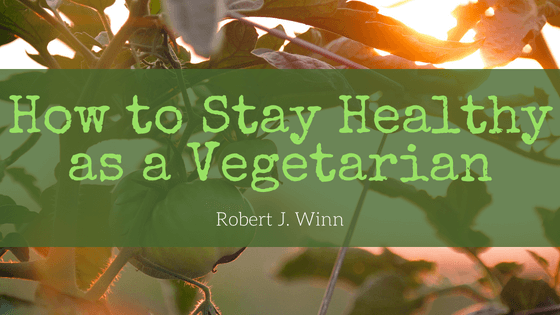Vegetarians are some of the healthiest people on the planet – or so popular opinion would have you believe. Humor me for a moment; what do you picture when you hear the term? Do you think of a willowy runner who wrinkles her nose at the Philly cheesesteak sitting on your plate as she unpacks her carefully-compartmentalized yogurt and veggies? Or do you think of that one guy at your cousin’s wedding who loudly announced that he couldn’t have the entree because the balsamic chicken infringed on his new diet? For most of us omnivores, the choice to become a vegetarian is something to accept with the occasional eye roll; healthy or not, you don’t plan on giving up your bacon cheeseburger anytime soon.
But does vegetarianism really deserve our scorn? I’m not so sure. People turn to vegetarian lifestyles for a myriad of valid reasons; some shy away from meat for the sake of religious or moral beliefs, while others turn towards a meat-free diet as a way to combat high cholesterol or heart disease. A recent article from Medical News Today even reported that vegetarian diets have been found to diminish the risk of conditions including “heart disease, obesity, hypertension, type 2 diabetes and some types of cancer.” The choice to carve out meat from our diets is a reasonable and very personal choice – but it needs to be implemented thoughtfully to maintain an ideal nutritional balance.
Contrary to what public opinion might suggest, vegetarianism isn’t always the healthiest choice for your new diet plan. One writer for Harvard Health puts it succinctly: “A diet of soda, cheese pizza, and candy, after all, is technically ‘vegetarian.'” Vegetarian diets come in a variety of different iterations, each with their own rules and stipulations. Below, I’ve pulled together a quick list of the more popular variations:
Lacto-Ovo Vegetarians: People who adhere to this diet can eat dairy products and eggs, but shy away from poultry, fish, and meat.
Pescatarians: These vegetarians steer clear of meat, dairy products, and eggs, but allow themselves fish.
Vegans: Vegans are some of the most restrictive vegetarians, as they stay away from meat, fish, poultry, dairy products, and eggs. They also opt out of any foods that include ingredients from the above categories.
As you can probably infer from looking over the restrictions, finding foods that supply the same nutrients provided in meat and dairy can be troublesome. Meat and poultry in particular are great sources of protein and essential vitamins and minerals. Getting enough protein is vital to daily health; it enables the growth and maintenance for bones, muscles, skin, and blood, and further provides the essential foundation for enzyme and hormone production in the body.
However, this lack isn’t an impossible barrier; vegetarians can live nutritionally-balanced and healthy lives without relying on meat or dairy. Those living a veggie-centered diet simply need to strategize, and find ways to compensate for the nutrition they lose by foregoing meat! Protein-rich plants such as beans, lentils, nuts, and whole grains should be subbed in for meat-based dishes, and fruits and vegetables should complement every meal to ensure proper iron absorption. If you choose not to eat fish, you can sub in walnuts or Brazil nuts to take in Omega-3 fatty acids. It may help to seek out a cookbook that specializes in vegetarian meals to ensure that you create a healthy and balanced diet for yourself!
Vegetarianism is a valid choice for any who choose to take it up – but it should be done thoughtfully. Strategy is key to building a healthy diet, regardless of whether you choose to eat meat or not!

